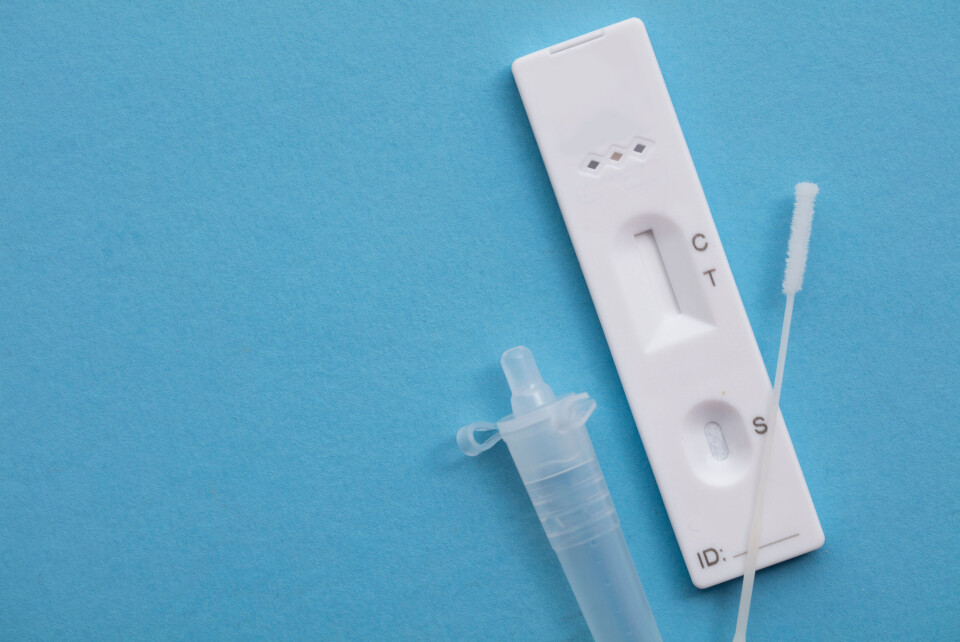-
Explosion at chemical plant near Lyon: where are other ‘at risk’ sites in France?
An estimated 2.5 million people live within a kilometre of a French Seveso site
-
Farmer blockades to continue on motorways over Christmas in south-west France
Protests are being maintained on the A64, A83 and A63 and on departmental roads
-
Interview: UK-France relations will only get stronger this year says new British Ambassador
The Connexion speaks to Sir Thomas Drew, who took up the role on September 1
Where and how can I take a Covid self-test before Christmas in France?
France’s health authorities recommends that people take a test before meeting family and friends for Christmas gatherings

People in France - vaccinated or not - are being advised to take a Covid test before they meet friends and family for Christmas get-togethers in order to limit as much as possible the spread of the fifth wave.
It comes equally as health advisors call for New Year Covid restrictions in France.
Read more:Health advisors call for New Year Covid restrictions in France
The Conseil scientifique advisory body has said that for family gatherings such as Christmas dinners, it is advisable to do a self-administered test on the day or an antigen test the day before or on the day of the event.
France’s health authorities have also recommended that people make sure to regularly wash their hands and air out rooms, and that they consider wearing a mask in enclosed spaces.
Read more:Omicron, tests, guests: Official guidelines for Christmas in France
What is a self-administered test and where can I get one?
Self-administered tests are antigen (lateral flow) tests which are carried out by the person in question and not by a pharmacist or other healthcare professional.
These tests can be bought in pharmacies and in some supermarket chains across France. They cost €5.20 and are not reimbursed by Assurance maladie unless you work in certain care settings.
To produce results, you will need to put a swab about 2-3cm up your nose – until you feel a slight resistance – and circle it round 10 times.
The swab should then be introduced into a small tube containing a few drops of liquid, and press into the sides to extract the sample.
A couple of drops of the liquid in the tube should then be gently squeezed into the test kit specimen well.
Within 15-20 minutes, the kit will show your result, which will appear as a single pink line next to the letter ‘C’ to reflect a negative sample or a pair of lines for a positive sample, working in a similar way to a pregnancy test.
If you take a self-administered test and it returns a positive result, you will need to do a PCR test to confirm and isolate until you get the result.
Self-administered tests can be used to renew your health pass if you are not vaccinated, but must be done under the supervision of a pharmacist. They cannot, however, be taken as pre-departure travel tests.
Which of the Covid test options is the most reliable?
Self-administered tests can be used for reassurance by people who are asymptomatic and not a close contact of a confirmed Covid case.
They are generally slightly less reliable than a PCR test but can give an indication as to whether you have been infected with Covid and are contagious.
France’s health service quality regulator Haute Autorité de Santé states that they are “capable of detecting the presence of the virus in an infected person in at least 80% of cases.”
It says the tests are capable of detecting the absence of the virus among people who are not infected in more than 99% of cases.
However, the fact that people can carry out self-administered tests on themselves means that errors can occur, reducing their overall accuracy.
“The iterative – that is, repeated several times – quality of self-administered tests allows, however, to increase their reliability if samples are taken repeatedly,” France’s Health Ministry said.
PCR tests are the most accurate option for people who wish to check that they do not have Covid, as the risk of their returning a false negative or false positive is “nearly zero.”
However, these tests cannot be self-administered and must be sent off to a laboratory to be analysed before returning results.
This process is more costly (coming to around €44 in France) and takes around 24-48 hours. Vaccinated people can be reimbursed by Assurance maladie, but unvaccinated people must cover this cost themselves unless they have a doctor’s prescription or have been identified as a close contact of a Covid case.
Read more: How to get a Covid test in France and when you have to pay
It is also possible to take a saliva test by spitting into a tube and sending the sample off for analysis. These tests are thought to be less reliable than PCR tests, with a sensitivity of 85%.
These tests are only really used if obtaining a sample from inside the nose or mouth using a swab is not possible.
Related articles
Coronavirus: Daily updates on the situation in France
Health pass should become vaccine pass, says French prime minister
























